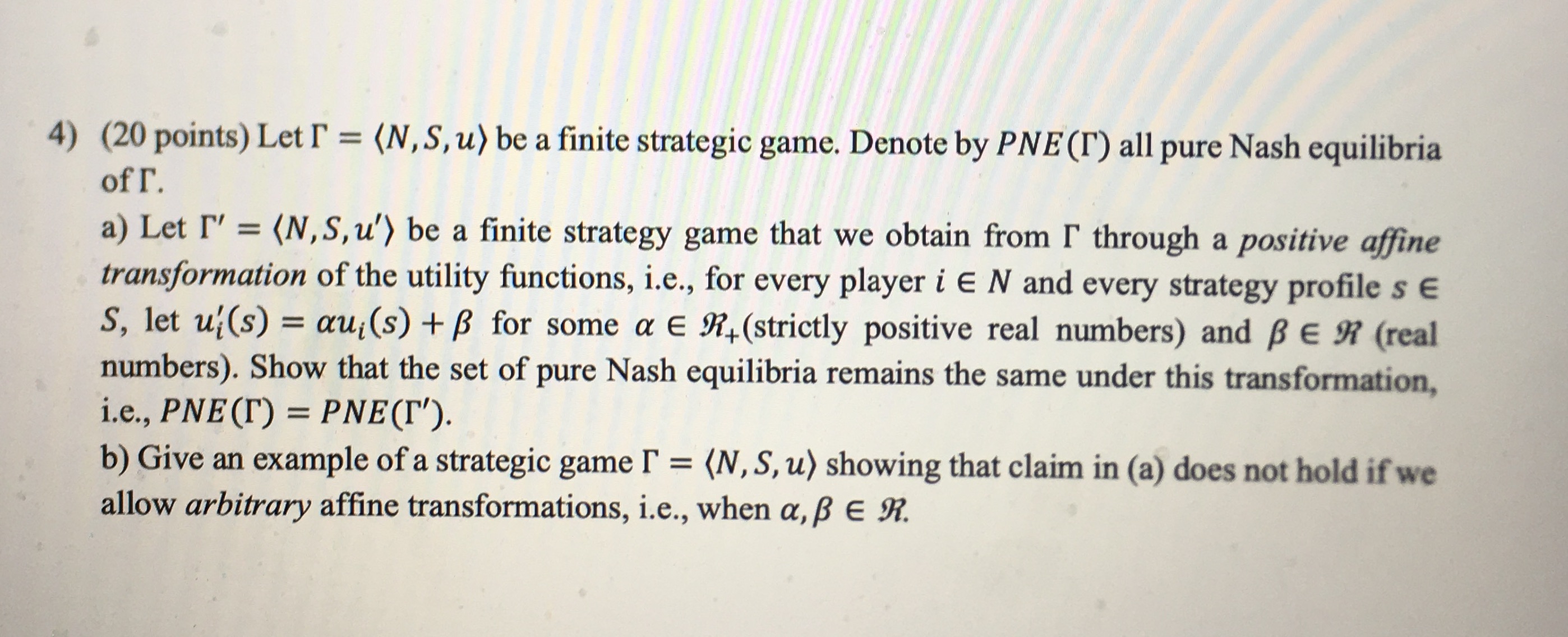Answered step by step
Verified Expert Solution
Question
1 Approved Answer
Thank you in advance 4) (20 points) Let T = (N, S, u) be a finite strategic game. Denote by PNE (D) all pure Nash
Thank you in advance

Step by Step Solution
There are 3 Steps involved in it
Step: 1

Get Instant Access to Expert-Tailored Solutions
See step-by-step solutions with expert insights and AI powered tools for academic success
Step: 2

Step: 3

Ace Your Homework with AI
Get the answers you need in no time with our AI-driven, step-by-step assistance
Get Started


